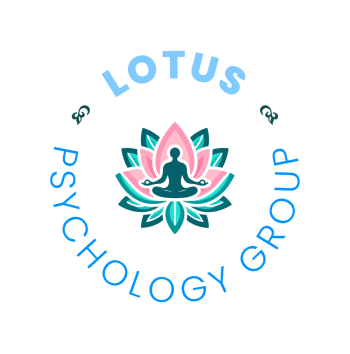Alzheimer’s disease effects approximately 6 million people in the U.S., and with new cases diagnosed each year, it is a fast-growing illness. Alzheimer’s disease leads to more deaths than both breast and prostate cancer combined, and this condition impacts loved ones as much as those who receive the diagnosis as an estimated 11 million people in the U.S. serve as unpaid caregivers to a loved one who has been diagnosed with Alzheimer’s. While those statistics are, frankly, terrifying, there is support and hope for those with Alzheimer’s and their caregivers. As therapists, we want to spread awareness and advocate for those living with Alzheimer’s and their caregivers. Specifically, therapists work to provide information about how the diagnosis impacts the emotional and cognitive health of those who are suffering from Alzheimer’s and their loved ones. You can learn more in this blog or by reaching out to the knowledgeable team members at Lotus Psychology Group.
The Impact of an Alzheimer’s Diagnosis
Alzheimer’s disease is an incurable brain condition that often impacts people as they age. However, this is not a natural part of the aging process. Instead, it is a slow progressing disease that causes brain damage that accumulates over time. Early diagnosis may give physicians more options to slow the progression. The best way to receive an early diagnosis for Alzheimer’s is to monitor the signs of mild cognitive impairment (MCI) that precede Alzheimer’s and dementia. Some of the common symptoms of MCI include:
Slow to recall details, words, or images
Increased impulsivity or poor decision making
Forgetting to go to planned meetings or appointments
Asking questions repeatedly and/or forgetting the answers
Getting easily lost or forgetting destinations
Losing items
Changes in personality
Mood swings
How an Alzheimer’s Diagnosis Impacts Caregivers
The children, spouses, and other loved ones who help care for people who have an Alzheimer’s diagnosis take on a great deal of responsibility. This can lead to increased risk for:
Chronic and severe stress
Depression
Anxiety
Guilt or feelings of failure when they can’t do it all on their own
Health issues related to failure to make time for their needs
Financial struggles
Not feeling like they have enough time or energy for the rest of their responsibilities
Benefits of Therapy as Part of Alzheimer’s Continuum of Care
An Alzheimer’s diagnosis is difficult for those diagnosed with the condition and their caregivers. While many people don’t consider therapy an important part of the treatment for Alzheimer’s, counseling sessions actually make a big difference for the person struggling with Alzheimer’s disease and their loved ones. Some of the benefits of including therapy in the Alzheimer’s continuum of care include:
Allow Alzheimer’s patients and their loved ones to speak openly and honestly about the diagnosis
Give those with an Alzheimer’s diagnosis and their caregivers an outlet to work through difficult emotions or negative thoughts
Provide a support system to help with the development of coping strategies and increased resilience
Improve communication between Alzheimer’s patients and their caregivers
Instill a greater sense of stability and increase self-esteem
Get Started Today
Whether you’ve recently received an Alzheimer’s diagnosis or you’re the caregiver of someone who has, we’re here to support you. If you’d like to ask any questions or get started with therapy, please don’t hesitate to reach out. You can contact us by calling (248) 957-8973, emailing info@lotuspsychgroup.com, or completing our contact form.
